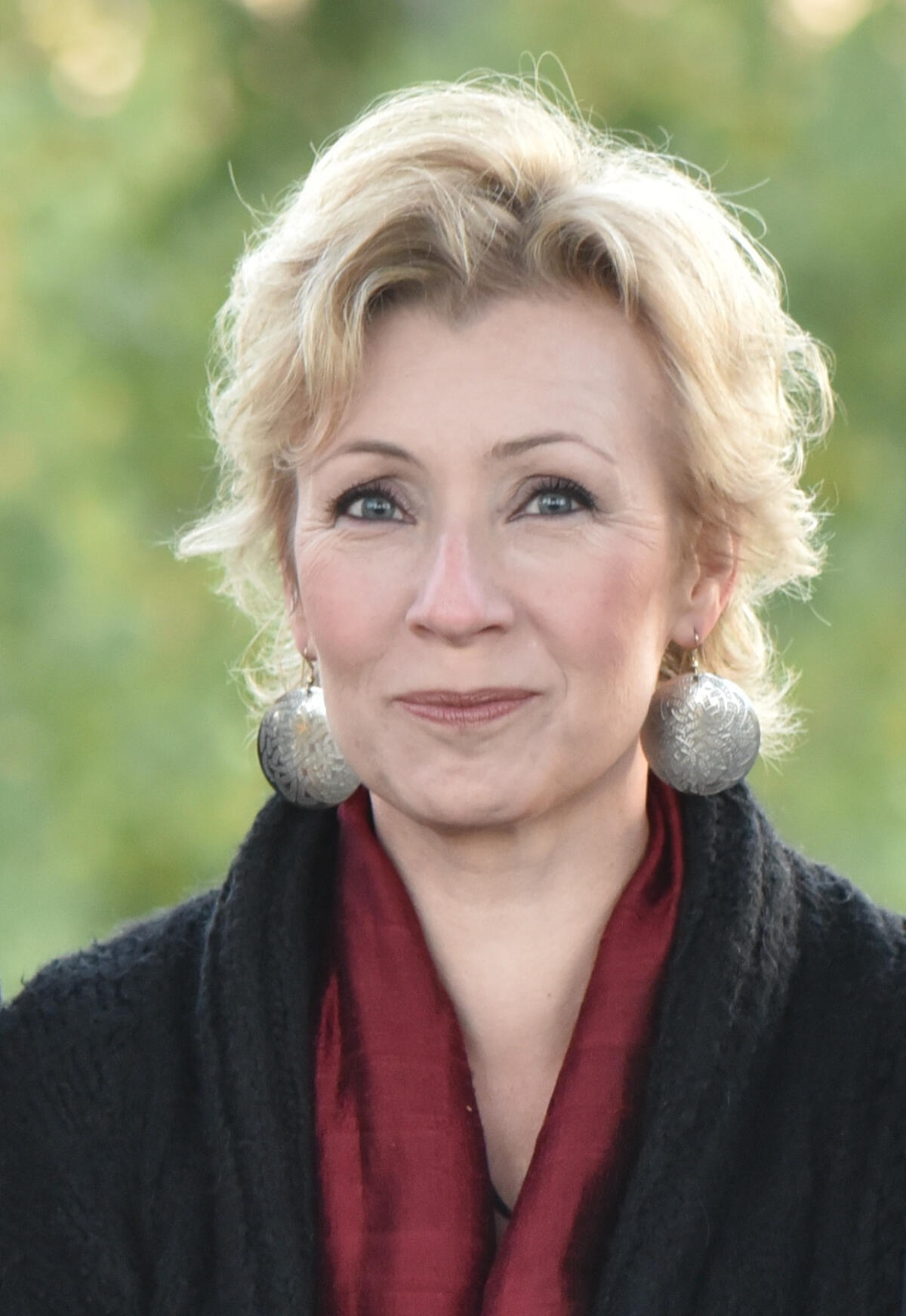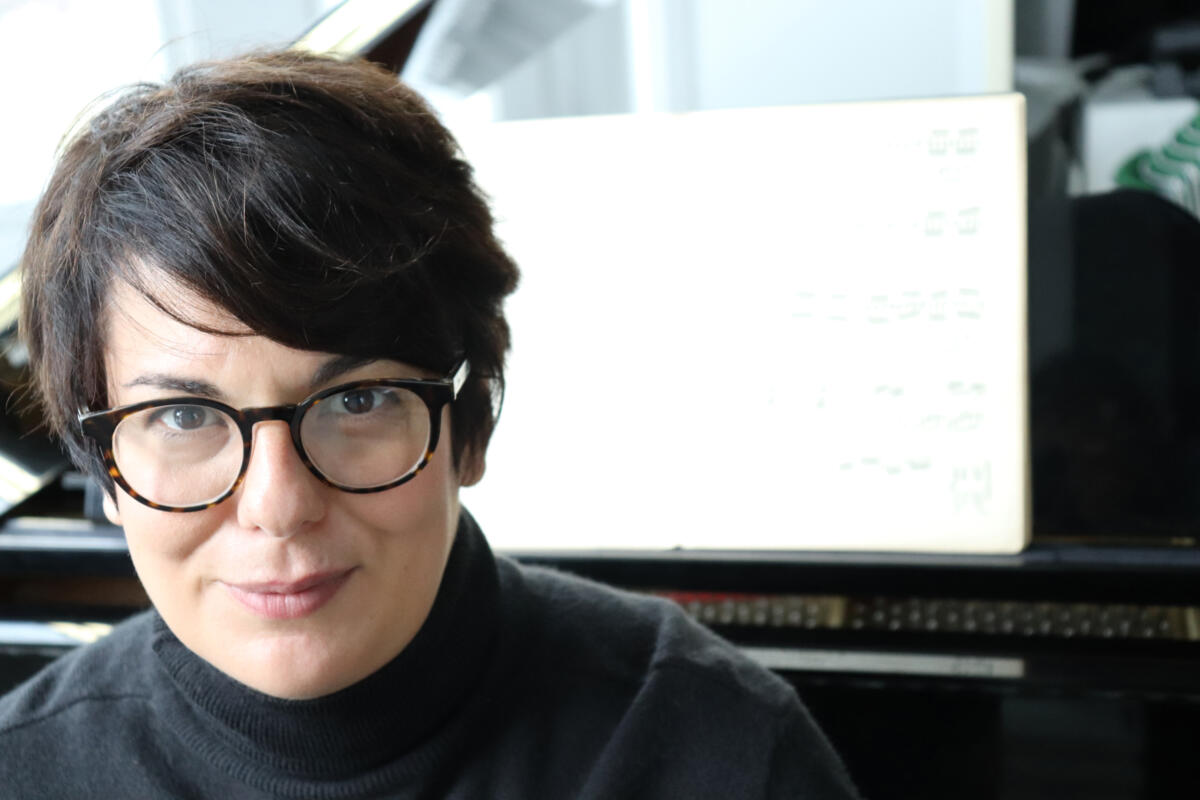Doctors in Performance 2025: Keynote speakers
The keynote speakers of the festival conference are Professor of Folk Music Kristiina Ilmonen (University of the Arts Helsinki, Sibelius Academy) and Dr. Inja Stanović (University of Surrey, Department of Music and Media).

Dr. Kristiina Ilmonen (University of the Arts Helsinki Sibelius Academy, Professor of Folk Music): Expanding Inwards – Being in music without a tune
The intangible cultural heritage of Finnish and Karelian older musical traditions – runosong, kantele and jouhikko music, shepherd music among others – are based on variation and improvisation, using repetitive melodic and rhythmic patterns. A specific performance style is the orally learned tradition of long-duration music-making, which contemporary folk musicians often call long aesthetics (pitkä estetiikka), where the performer approaches a meditation-like mindset. The music does not begin and end as a tune often does; instead, you enter it like an invariably existing stream and choose to come out when needed. Syvälle (Into the Deep) – A folk music improvisation laboratory as an alternative to tune-based music is a collaborative artistic research project that explores the process of making and performing contemporary folk music based on historical sources and creative experimenting. The Syvälle artistic collective shares a common experience where this music has profoundly impacted us as musicians and more – as humans.
The deep essence of this old runosong culture calls today’s performers and composers with another worldview of how art can be seen, created and experienced. It challenges the customary outcome of musical creativity, the tune or the composition: Can music in our modern society manifest itself in other ways than as works? What can be found in the musical creation process if not forced into the typical forms and venues – how does lingering in the unfinished affect the performance or, in fact, the performer? How can the archaic allow and inspire contemporary expression? What do memory-based music-making and the micro-varied music of long aesthetics do to the musician-composer who embraces it – what kind of expression might emerge? When does improvisation become a composition, and does it matter?
This lecture-recital will delve into the creative performer’s expression and intuition, finding our path in improvisation into this older way of being in music. Perhaps the aesthetics of slowness, gradual change, embodied listening and outward stillness but expanding inwards could lend us an alternative to the current societal mindset of continuously striving towards faster, higher, stronger – the demand for all-around effectivity, being in control and so-called success in all life areas, including music.
Keywords: improvisation, artistic research, music as/without tunes, memory-based music, long aesthetics, sustainability in music
Biography
Among the pioneers of the Finnish contemporary folk music movement, Dr Kristiina Ilmonen is a performing musician, composer, educator, practice-based researcher, and folk music professional. She specialises in Finnish traditional music, wooden flutes, percussion, and improvisation. Ilmonen performs solo with folk winds and in various ensembles, has toured in over 20 countries and plays on over 30 CDs. Free improvisation, contemporary dance, and site-specific art, often in outdoor locations, have been essential themes in her career as a collaborating musician. She has received scholarships and national awards for her artistic work.
She was the Head of the Sibelius Academy Folk Music Department from 1998–2004 and has been developing the Department’s syllabus, educational philosophy, and methodology as one of the primary teachers since then. Ilmonen has worked since 2014 as the Professor of Folk Music at the Sibelius Academy, leading a doctoral education unit of currently 15 students. Ilmonen is a member of the University of the Arts Helsinki Board. She has served as Vice Head of the MuTri Doctoral School and Research Unit, as Vice Head of the Uniarts Helsinki Collegium, Head of the Professors’ Council, and as a member of the Steering group of the Centre for Artistic Research (CfAR).
Ilmonen graduated as a Doctor of Music from the Arts Study Programme at the Sibelius Academy in 2014, studying runosong culture, especially shepherd music and its instruments in Finland and Karelia and adapting the musical heritage to enrich her contemporary expression, while co-developing a new model of a pinewood folk flute. Her current research interests include artistic research, historically informed performance in folk music, improvisation, collaborative creativity, folk wind instruments, sustainability in music and folk music pedagogy. Ilmonen has founded and chaired the Finnish Folk Music Researchers’ Symposium since 2015 and founded the Journal of Finnish Folk Music Research Satasarvi in 2020. She is the Principal Investigator of the collaborative artistic research project Syvälle – Kansanmusiikin improvisaatiolaboratorio teoskeskeisyyden haastajana 2024-2026, funded by the KONE Foundation.

Dr. Inja Stanović (University of Surrey, Department of Music and Media):
Grasping the Style: Artistic research and historically informed performance
Historically informed performance practice is inherently complex, not only are instruments and playing styles relative to specific cultural, social and historical contexts, literary sources are often highly subjective and, as with the performances that they describe, a product of their own time. Fortunately, practice may be informed by the existence of early recordings, which serve to illuminate stylistic conventions of past eras; such conventions are rarely mentioned in written documents and, using recordings as a guide, the principles of previous performances and interpretations can be systematically studied and understood. Crucially, recordings do not merely offer a window into the sound-world of past performances, they also offer a wealth of information about the physical and tactile nature of performance, which may ultimately serve as a model, or exemplar, for contemporary performances of the same works.
This lecture-recital discusses the role of early recordings in artistic research, starting with a discussion of the project (Re)constructing Early Recordings: a guide for historically-informed performance, established to provide the first ever systematic study into mechanical recording processes. Throughout, (Re)constructing Early Recordings focussed on 1) practical experiments using early recording technologies to capture a series of musical performances; 2) analytical studies, including analysis of mechanical recordings, and a comparison between mechanical and digital recordings; 3) investigation of methods for the capturing, analysis and understanding of mechanical recording technologies that may substantially inform future research and scholarly enquiries. The usage of Edison phonographs and other various mechanical recording machines to produce wax cylinders and 10-inch discs highlighted a huge gap in contemporary understanding of the mechanical recording process, and early recordings. Since then, these experiments with mechanical recording techniques have included various settings: from research-oriented workshops with students and professionals, to historically informed (re)constructions of analogue sound carriers.
Live performances will be used to explain how mechanical recording technologies informed performance-practice research, demonstrating certain key findings, shedding light on early recording practices, along with insights into romantic playing practices, styles and recording techniques of the early twentieth century. More broadly, this lecture-recital points out a long-standing gap in our contemporary understanding of mechanical recording sessions, the extent to which performing musicians adapted their practice when recording with mechanical technologies, and explores plethora of possibilities in early recording usage in artistic research.
Keywords: artistic research, historically informed performance practices, early recordings, mechanical recording technologies
Biography
Dr. Inja Stanović is a pianist and musicologist, whose areas of research include early recordings, historically-informed performance practices, and historical recording technologies. Through her previous research, she developed new research methods – historically informed recordings and mechanical recording workshops. As a pianist, Inja has performed throughout the world, and she is also a published author. Most recent publications include the co-edited (with Dr. Eva Moreda Rodríguez) volume Early Sound Recordings: Academic Research and Practice (Routledge, 2023), research album Austro-German revivals: (Re)constructing Acoustic Recordings (co-authored with Dr. David Milsom; University of Huddersfield Press, 2023) and the article for Music & Practice, ‘(Re)constructing Early Recordings: Reviving the Brave Belgians’ (co-authored with dr. Jeroen Billiet, 2023). A recent review from Music & Letters (June 2024), describes Inja’s writing as “a testament to the power of practice-based research [that] should be read by every scholar or student who seeks to draw upon early recordings in their work.”
Inja currently works as Surrey Future Senior Fellow, at the University of Surrey, where she is the Head of Performance, and directs the digital platform for historical recording research and practice – Early Recordings Association. ERA embodies forward-thinking research and serves to educate and inform researchers and students, generating innovative paths in the field of early recording research.